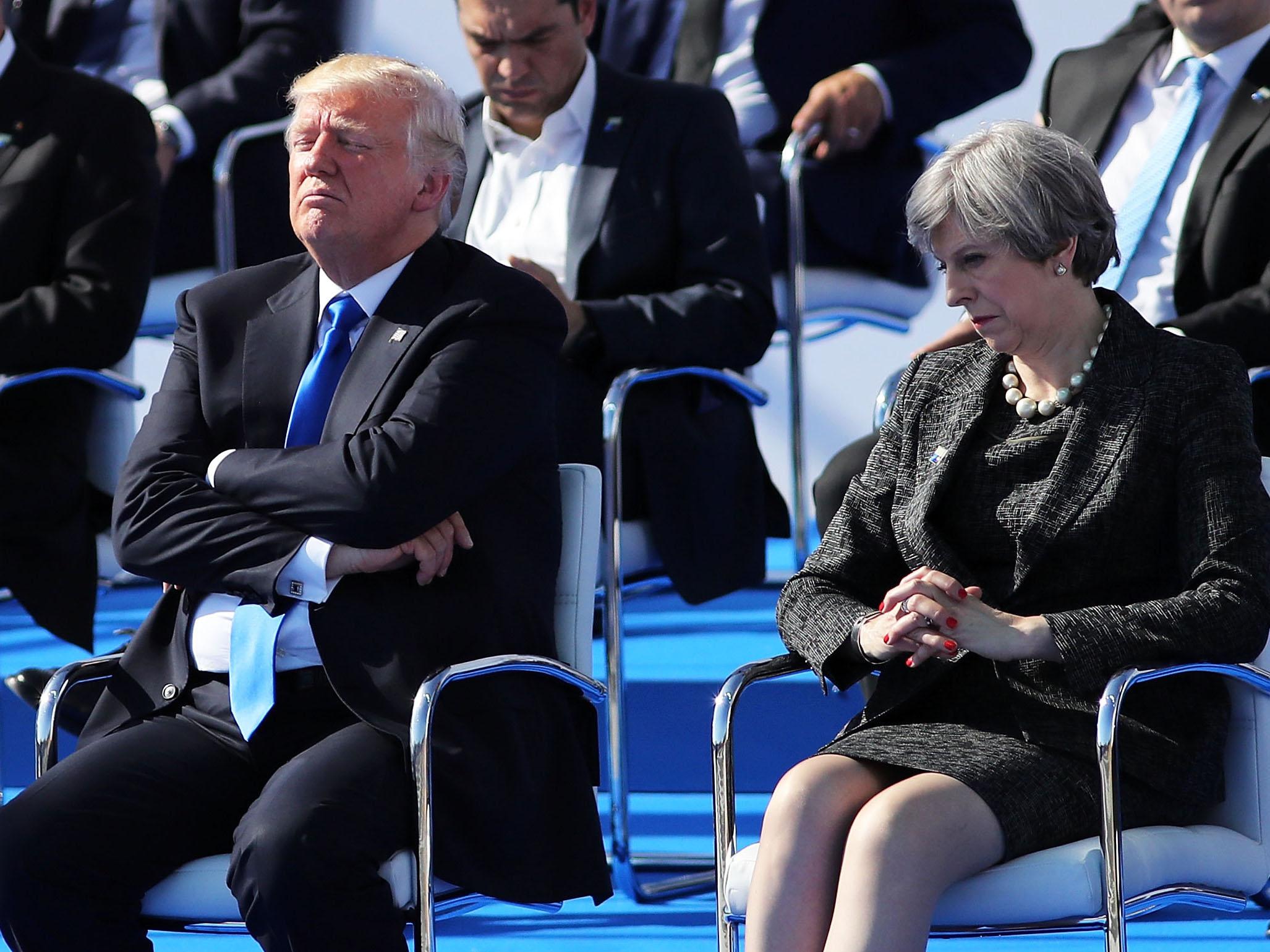Resolving tensions between the US and the UK should be at the forefront of Donald Trump’s visit next week
There have been periods where the gap between the two nations has been much larger than it is now: the run-up to the Second World War and its early years, McCarthyism in the 1950s and the 1956 Suez crisis

Donald Trump’s visit to the UK has inevitably aroused strong feelings and will be met – as are visits by the president to many parts of the US – with vocal protest. That he has chosen to spend half of his trip in Scotland, where he owns two golf courses, is telling. That he should limit his visit to London to one night at the US ambassador’s residence, Winfield House in Regent’s Park, is even more so. He will thus be spared the sight of the mocking Trump balloon floating over Westminster – though, with nice irony, Winfield House was the location for the RAF’s barrage balloons during the Second World War.
The important thing to be clear about, aside from this country having the freedom to make its views about US leadership evident, is that the relationship between the two countries is vastly bigger than that between the two governments of the day. There have been periods where the gap between the two nations has been much larger than it is now: the run-up to the Second World War and its early years, McCarthyism in the 1950s and the 1956 Suez crisis. There are tensions, to be sure, but nothing like some of those in the not-so-distant past.
The task of the two governments now is to manage those tensions. There are two core areas where US and UK long-term interests are closely aligned and will remain so: that Europe should remain a calm and successful economic and political region; and that the world economy as a whole should continue to prosper. Yet those two areas have both been thrown into turmoil by democratic decisions made in the two countries: Brexit and the election of Mr Trump.
This is not the time to rehash those two events. Rather it is to ensure that both governments are cautious, supporting and realistic about the future of Europe and the future of free trade. On Europe, The Independent has made its views clear and, for all that Mr Trump has said (or tweeted) about the European Union, this US administration is as aware as its predecessors of the importance of a stable Europe. On free trade, the president has made it his business to engineer some sort of reset. The US still wants to be able to export its goods and services to the rest of the world; it just wants to do so on what it perceives as somewhat more favourable terms.
These are two points the British government should press upon Mr Trump and his advisers. It should not be discouraged by the president’s rhetoric, for that is a negotiating stance. There are, however, obvious dangers that stem from this tactic.
One is that Russian president Vladimir Putin, whom Mr Trump will fly off to see shortly, will be emboldened by US ambivalence towards Nato. But that stated ambivalence is designed to pressure other countries, notably Germany, to put more resources into its own defence. Were it to do so, that would strengthen Nato, not weaken it. Another is that there will be a gradual slither into still-greater trade restrictions, with a tit-for-tat counteraction of imposition and reprisal that makes no sense at all.
In all this the UK should play the long game. The two countries will continue to cooperate at many levels, as they have in the past, despite periodic squabbles by the politicians of the day. The UK’s task now is to support aspects of US policy, such as the protection of intellectual property, that are in the long-term self interest of both countries, and to lean against aspects of US policy, such as a weakening of support for Nato, that undermine the security of both Europe and the US.
As for Mr Trump, he should enjoy his visit, even if many Britons will make it clear of what they think of his presidency.
Join our commenting forum
Join thought-provoking conversations, follow other Independent readers and see their replies
Comments